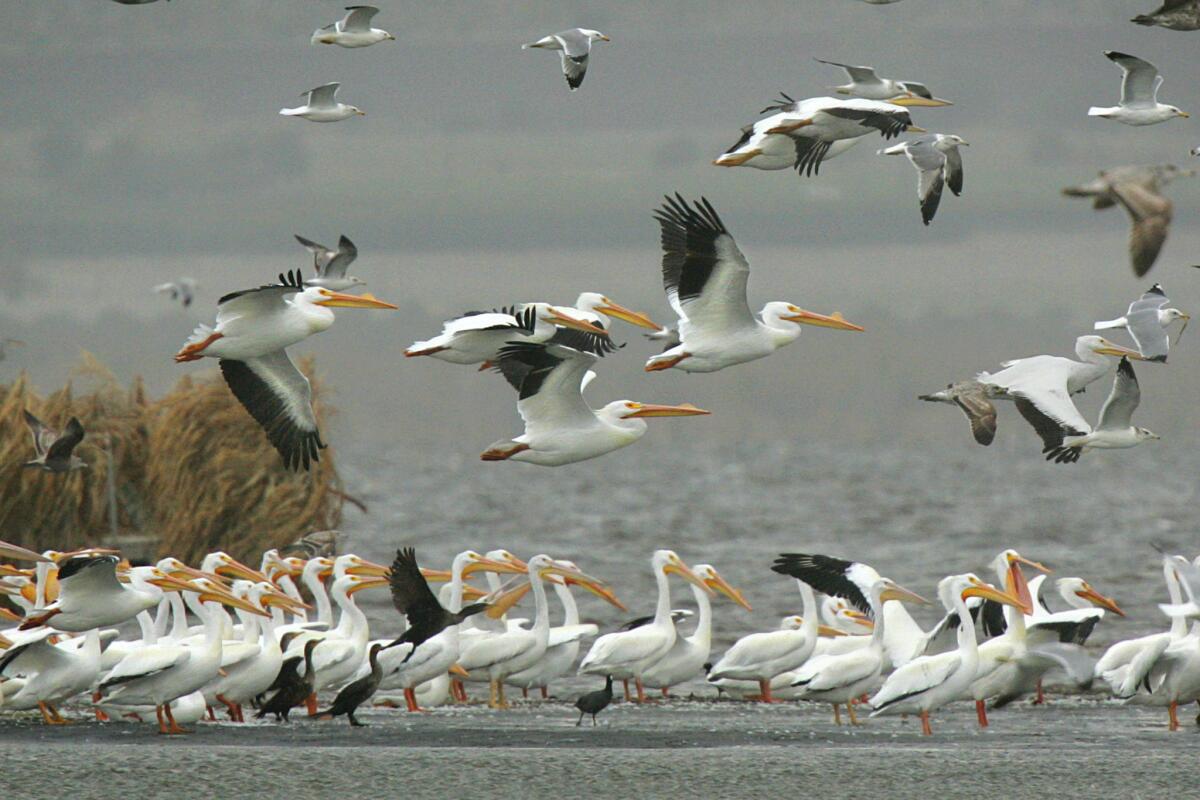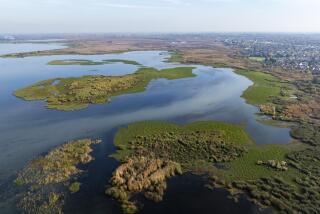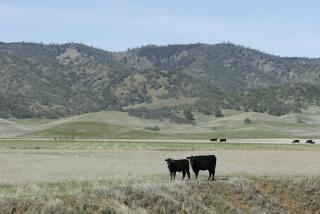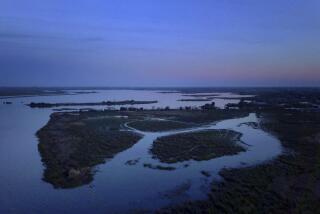Water officials hear predictions of looming crisis at Salton Sea

After listening to seven hours of doomsday predictions, state water officials agreed Wednesday to look at one of California’s largest but often ignored environmental problems: the deterioration of the Salton Sea.
State Water Resources Control Board members asked agency staff to explore what power the agency has to get involved in a dispute that, at its core, involves the state Legislature’s refusal to live up to its 2003 promise to keep the sea from shrinking and wreaking havoc on the region’s environment, economy and public health.
Thomas Howard, the board’s executive director, said he would talk soon to representatives of other state agencies and the governor’s office about ways to find a “collaborative approach” to fixing the Salton Sea, the smelly body of water that straddles Riverside and Imperial counties.
“The problem has been studied to death,” Howard said. “The problem is very amenable to very complicated and expensive solutions.”
One solution that gained favor with state bureaucrats in 2007 had a pricetag of $8.9 billion. The plan was dead on arrival during budget season at the Legislature and has not been revived.
The board’s hearing was at the behest of the Imperial Irrigation District, which has suggested that the board should amend its approval of the 2003 water deal between Imperial and the San Diego County Water Authority in order to require the state to fulfill its promise.
While the board made no promises about taking action, Kevin Kelley, the irrigation district’s general manager, said he was pleased that the board at least said it would discuss the issue at a future meeting.
“The Salton Sea is not a fine wine; it doesn’t improve with age,” Kelley said.
To sell water to San Diego County, Imperial Valley farmers have had to fallow land – 50,000 acres last year. A reduction in water used for irrigation means less runoff water into the Salton Sea; runoff is a major source of replenishment for the sea.
The sea is shrinking, which exposes more ground to the air. As the sea recedes, dust storms swirl with a suddenly exposed sea bed laden with agricultural pesticides. The Imperial Valley and Coachella Valley areas have a high rate of asthma and other breathing problems.
Under the water deal approved in 2003, the irrigation district is required to put water directly into the sea, slowing but not halting its decline. But that requirement lapses in 2017, when the rate of shrinkage is expected to increase dramatically without the extra water.
Dr. Stephen Munday, Imperial County health officer, said that he has already seen the effect of unhealthy air on his patients. “I’m gravely concerned for their health in the future,” he said.
In 2012, westward winds brought a rotten-egg stench from the Salton Sea over much of Southern California. In 2014, the Pacific Institute, a Northern California environmental think-tank, predicted the stink storm was only a small taste of what will become commonplace if the Salton Sea continues to shrink.
At the Sacramento board meeting, several speakers made ominous comparisons to the dust storms at Owens Lake, which had considerable water until much of it was diverted for use in Los Angeles.
“The Salton Sea is three times larger than Owens Lake and the destruction caused by inaction will likely be three times worse,” said Imperial County Supervisor Ryan Kelley.
While there is nothing approaching an overall plan for the Salton Sea, there are several smaller projects, mostly to preserve the sea as a place for fish and migratory birds.
“It’s hard to plan around an uncertain funding level,” said Kealii Bright, deputy secretary of the state Natural Resources Agency.
Without the Legislature’s promise, it is doubtful that the Imperial Irrigation District board would have approved the 45-year deal, touted as the largest farm-to-cities water sale in the nation. Even with the promise, the vote was 3 to 2 and the board member who supplied the swing vote was defeated in the next election.
The state’s failure to follow through has left a residue of bitterness.
“Where I come from, your word is your bond,” said Ryan Kelley. “The state of California has failed to honor its bond.”
More to Read
Start your day right
Sign up for Essential California for news, features and recommendations from the L.A. Times and beyond in your inbox six days a week.
You may occasionally receive promotional content from the Los Angeles Times.






